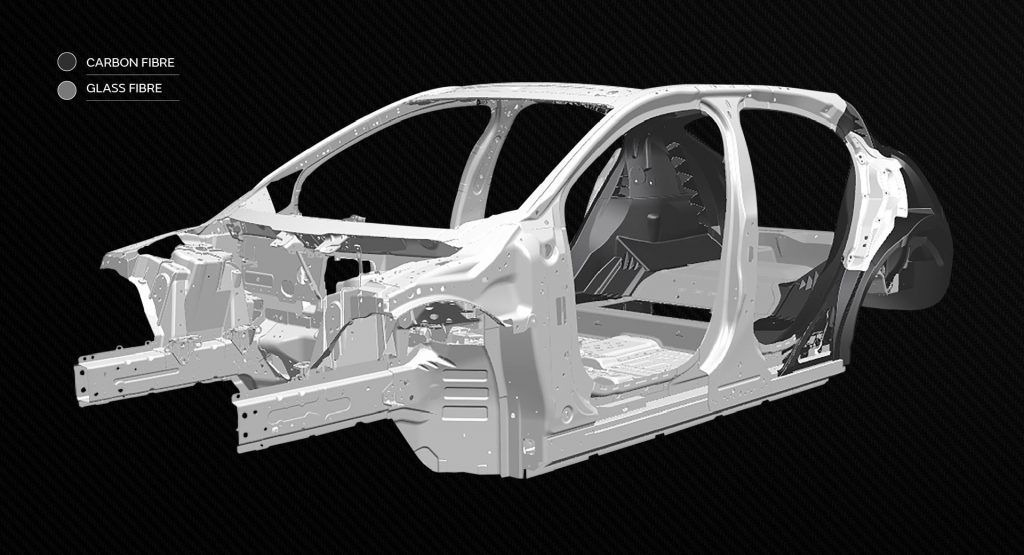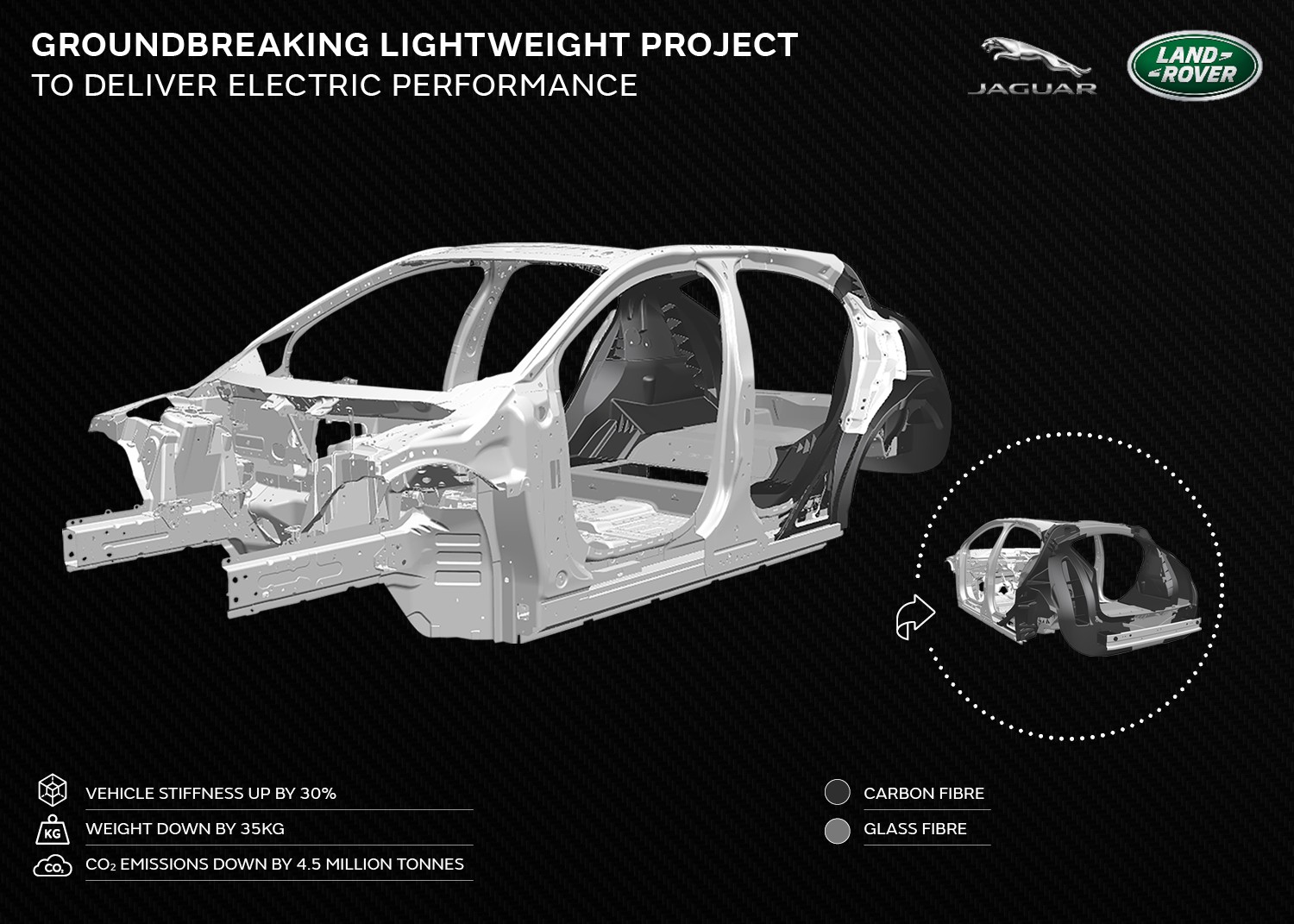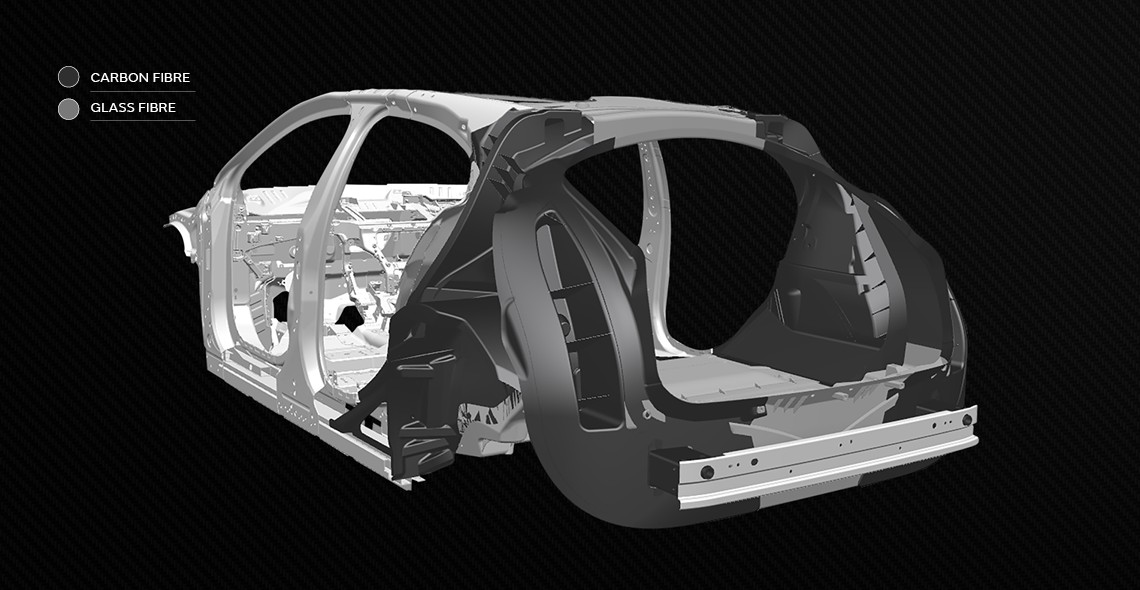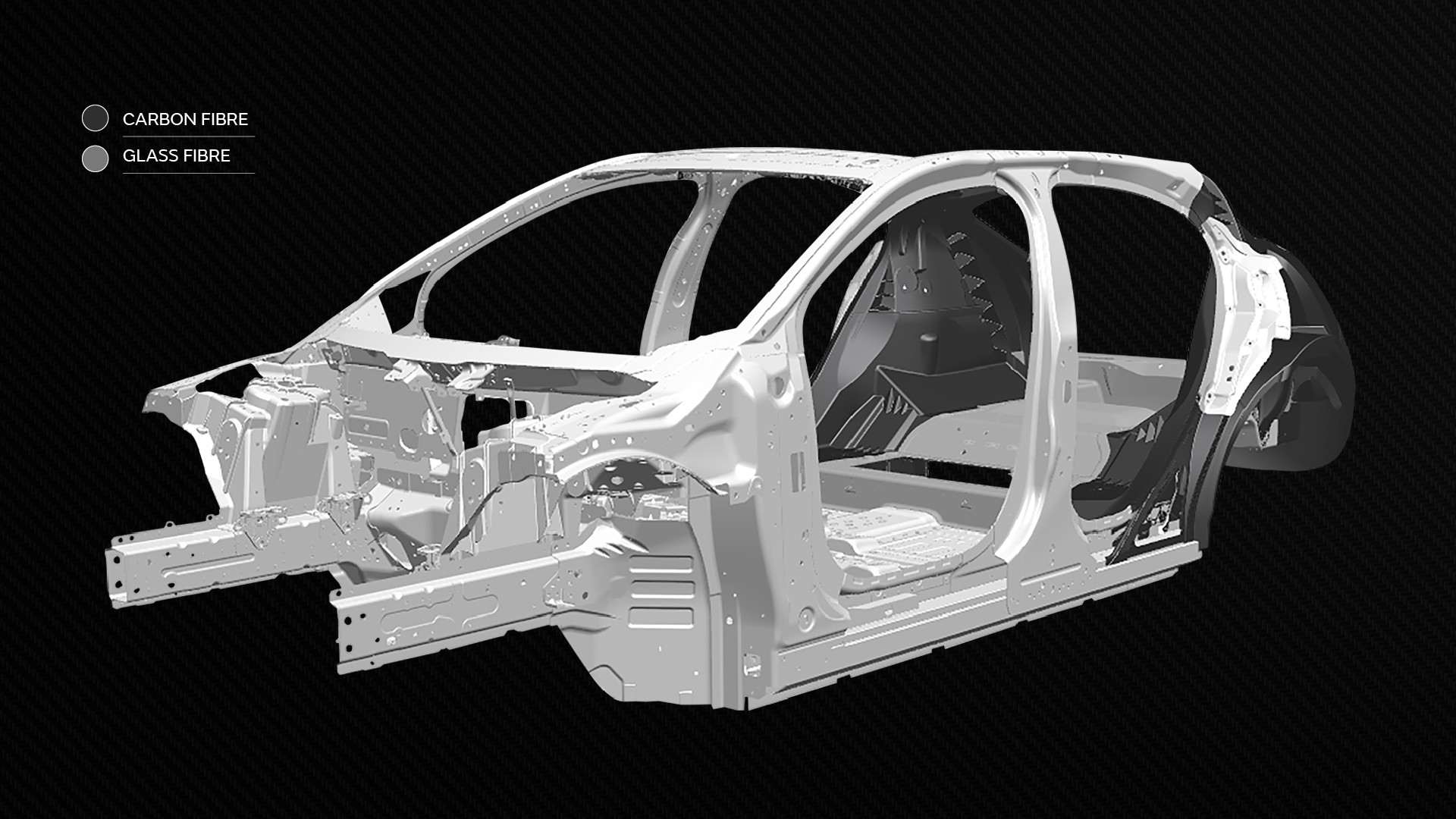Jaguar Land Rover is conducting research into advanced lightweight composites for use in future electric vehicles.
The ultimate goal is to develop “vehicle and powertrain structures” that eschew aluminum and steel for lightweight composites that are strong enough to withstand the increased torque generated by electric powertrains.
If the company is successful, we can expect lighter and more efficient electric vehicles that could also offer an increased range as well as a more dynamic driving experience.
Also Read: JLR’s Structural Electronics Can Revolutionize Car Interiors
However, the goals are relatively modest as the company is aiming for a 77 lbs (35 kg) weight reduction as well as a 30% increase in vehicle stiffness. As part of this mission, the crash safety structure will be refined and outfitted with “tailored composites” such as carbon fiber.
Jaguar Land Rover isn’t alone in this endeavor as they’re part of the Tucana project which also includes “world-leading academic and industry partners” such as the Warwick Manufacturing Group, Expert Tooling & Automation, Broetje-Automation UK, Toray International UK, CCP Gransden and The Centre for Modelling & Simulation.
If everything goes according to plan, Jaguar Land Rover will have a fleet of Tucana prototypes ready by the end of 2022. The project aims to prevent “4.5 million tonnes of CO2 emissions between 2023 and 2032 by accelerating mainstream use of electric vehicles and making vehicles lighter to both decrease tailpipe emissions and reduce energy consumption of electrified powertrains.”
While there’s no word on when we could see Tucana composites in production vehicles, JLR research manager Marcus Henry said that “the development of new lightweight body structures to complement the latest zero-emissions powertrains will be key as the electrification of our vehicle range continues.” He added that “this project will allow the true environmental credentials of electric vehicles to be realized by enabling wider adoption of the technology and will propel Jaguar Land Rover and the UK supply chain into a world-leading position in low-carbon technology.”












